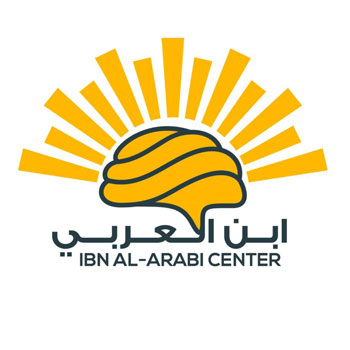الاعتبارات الأخلاقية في دمج الذكاء الاصطناعي في رؤية المملكة العربية السعودية 2030 للتعليم
DOI:
https://doi.org/10.56989/benkj.v5i3.1402الكلمات المفتاحية:
رؤية السعودية 2030، دمج الذكاء الاصطناعي، تعليم الذكاء الاصطناعي، التربية والتعليمالملخص
استنادًا إلى مكانتها كجزء أساسي من رؤية المملكة العربية السعودية 2030، يتم استخدام الذكاء الاصطناعي من قبل الحكومة للمساعدة في تطوير التعليم، مع التركيز على تحسين النتائج وفي نفس الوقت تطوير الإدارة وزيادة الوصول. تحاول المملكة العربية السعودية توفير تجارب تعليمية مخصصة بمستويات متساوية من الفرص من خلال إدارة التعليم المعتمدة على الحوسبة، باستخدام أنظمة التعلم التكيفية القائمة على الذكاء الاصطناعي، والتقييمات الآلية، وما إلى ذلك. يتطلب دمج الذكاء الاصطناعي في الأنظمة التعليمية دراسة دقيقة للمخاوف الأخلاقية الرئيسية المرتبطة باستخدامه. يهدد تسريب البيانات المحتملة الخصوصية، ويجب أن تكون القرارات تجاه الخوارزمية عادلة، مما يجعل المملكة العربية السعودية تسعى إلى دمج استخدام الذكاء الاصطناعي بقيمها الإسلامية. ومع ذلك، يعتمد النظام على حدود المسؤولية المعروفة وفهم الاحتياجات الثقافية. يتم تحليل القضايا الأخلاقية وراء هذه التطبيقات باستخدام تطبيقات الذكاء الاصطناعي المدمجة في هيكل رؤية المملكة 2030. يظهر هذا البحث أنه يجب أن تشمل الحلول التقدمية استخدام تشفير قواعد البيانات الآمنة جنبًا إلى جنب مع منصات توزيع تكنولوجيا المعلومات الموحدة والأنظمة الذكية المدفوعة بالمعايير الثقافية التي تدعم النمط والحكمة التقليدية. مع وجود قائمة طويلة من اللوائح، وبرنامج تدريبي رسمي للذكاء الاصطناعي للحكومة، والتعاونات بين القطاع العام والشركات الخاصة، يظهر أنه يتعين على الحكومات القيام بكل هذا لتحقيق الذكاء الاصطناعي المستدام والأخلاقي. مع رؤية لتعزيز القيادة السعودية في تعليم الذكاء الاصطناعي الأخلاقي والحفاظ على التقاليد الثقافية مع استجابات فريدة للتحديات، وعليه يحاول هذا الإطار التعليمي الجديد زيادة القيادة السعودية في تعليم الذكاء الاصطناعي الأخلاقي.
Drawing on its status as a key part of Saudi Vision 2030, Artificial Intelligence (AI) is being used by the government to help improve education, focusing on improving outcomes while at the same time improving administration and increasing access. Saudi Arabia tries to provide tailored educational experiences at equal opportunity levels through computerized education management, using AI adaptive learning systems, automated assessments, etc. Thorough consideration of major ethical concerns associated with deploying it is necessary for integration into artificial intelligence systems. Data potential leaks threaten privacy, and algorithmic decisions must be fair, making Saudi Arabia struggle to unite the use of artificial intelligence with its Islamic values. However, the system depends on known responsibility boundaries and knowledge of cultural needs. The moral issues behind these applications are analyzed using Artificial Intelligence applications captured in Saudi Arabia’s Vision 2030 structure. This research shows that progressive solutions must include the use of secure database encryption along with standardized information technology distribution platforms and intelligent systems driven by cultural norms that support traditional wisdom. With a long list of regulations, an official AI training program for the government, and public sector collaborations with private companies, it’s shown that governments will need to do all this to attain sustainable and ethical AI. With the vision to advance Saudi Arabian leadership in ethical AI education and uphold cultural tradition with unique responses to challenges, this new educational framework attempts to increase Saudi Arabian leadership in ethical AI education.
المقاييس
المراجع
Al Fraidan, A. (2024). Anticipatory Thinking and AI-driven Assessments: A Balanced Approach to AI Integration in Education Aligned with Saudi Vision 2030. African Journal of Biomedical Research, 27(3), 619-628. https://www.ajol.info/index.php/ajbr/article/view/283255
AlGhamdi, A. A. (2022). Artificial Intelligence in Education as a Mean to Achieve Sustainable Development by the Pillars of the Kingdom's Vision 2030--A Systematic Review. International Journal of Higher Education, 11(4), 80-90. https://eric.ed.gov/?id=EJ1369433
Muafa, A. M., & Al-Obadi, S. H. (2024). The Impact of Artificial Intelligence Applications on the Digital Transformation of Healthcare Delivery in Riyadh, Saudi Arabia (Opportunities and Challenges in Alignment with Vision 2030). Academic Journal of Research and Scientific Publishing| Vol, 5(59). chrome-extension://efaidnbmnnnibpcajpcglclefindmkaj/https://www.ajrsp.com/en/Archive/issue-59/4.pdf
Bendary, M. G., & Rajadurai, J. (2024). Emerging Technologies and Public Innovation in the Saudi Public Sector: An Analysis of Adoption and Challenges Amidst Vision 2030. Innovation Journal, 29(1). https://openurl.ebsco.com/EPDB%3Agcd%3A6%3A848470/detailv2?sid=ebsco%3Aplink%3Ascholar&id=ebsco%3Agcd%3A176232637&crl=c&link_origin=scholar.google.com
Alotaibi, N. S., & Alshehri, A. H. (2023). Prospers and Obstacles in Using Artificial Intelligence in Saudi Arabia Higher Education Institutions—The potential of AI-based Learning Outcomes. Sustainability, 15(13), 10723. https://www.mdpi.com/2071-1050/15/13/10723
Abdullateef, S. T., Musa Alsheikh, R., & Khalifa Ibrahim Mohammed, B. (2023). Making Saudi Vision 2030 a Reality through Educational Transformation at the University Level. Labor and Industry, 33(2), 225-240. https://www.tandfonline.com/doi/abs/10.1080/10301763.2023.2184166
Bakry, S. H., & Saud, B. A. A. (2021). A Roadmap to AI: An Insight from the Saudi Vision 2030. Artificial Intelligence and Its Contexts: Security, Business and Governance, 201-223. https://link.springer.com/chapter/10.1007/978-3-030-88972-2_13
Mohiuddin, K., Nasr, O. A., Miladi, M. N., Fatima, H., Shahwar, S., & Naveed, Q. N. (2023). Potentialities and Priorities for Higher Educational Development in Saudi Arabia for the Next Decade: Critical Reflections of the Vision 2030 Framework. Heliyon, 9(5). https://www.cell.com/heliyon/fulltext/S2405-8440(23)03575-2
Aboalshamat, K., Alhuzali, R., Alalyani, A., Alsharif, S., Qadhi, H., Almatrafi, R., & Alotaibi, S. (2022). Medical and Dental Professionals are Ready for Artificial Intelligence for Saudi Arabia's Vision 2030. International Journal of Pharmaceutical Research and Allied Sciences, 11(4-2022), 52-59. https://ijpras.com/article/medical-and-dental-professionals-readiness-for-artificial-intelligence-for-saudi-arabia-vision-2030-msrq1tg2jdqkg3j
Elhajji, M., Alsayyari, A. S., & Alblawi, A. (2020, March). Towards an Artificial Intelligence Strategy for Higher Education in Saudi Arabia. In 2020 3rd International Conference on Computer Applications & Information Security (ICCAIS) (pp. 1-7). IEEE. https://ieeexplore.ieee.org/abstract/document/9096833/
Song, P., & Wang, X. (2020). A Bibliometric Analysis of Educational Artificial Intelligence Research Development in Recent Twenty Years. Asia Pacific Education Review, 21(3), 473-486. https://link.springer.com/article/10.1007/s12564-020-09640-2
O'Sullivan, S., Nevejans, N., Allen, C., Blyth, A., Leonard, S., Pagallo, U., & Ashrafian, H. (2019). Legal, Regulatory, and Ethical Frameworks for the Developing Standards in Artificial Intelligence (AI) and Autonomous Robotic Surgery. The International Journal of Medical Robotics and Computer-Assisted Surgery, 15(1), e1968. https://doi.org/10.1002/rcs.1968
التنزيلات
منشور
كيفية الاقتباس
إصدار
القسم
الرخصة
الحقوق الفكرية (c) 2025 مجلة ابن خلدون للدراسات والأبحاث

هذا العمل مرخص بموجب Creative Commons Attribution-NonCommercial 4.0 International License.































 ElDjawda Soft
ElDjawda Soft